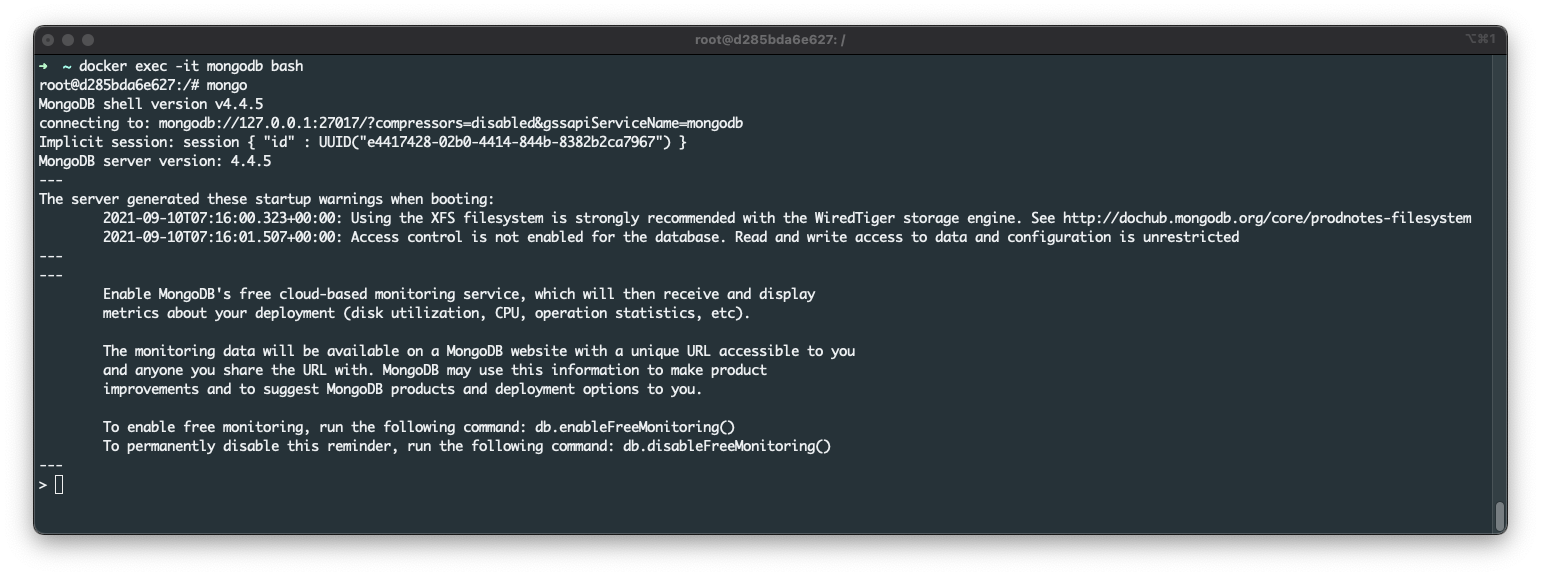Deploy MongoDB on Docker

For development and testing purpose, we have been using MongoDB container image on docker.
For load testing, it simplifies as we can spawn new database with seed data easily. Follow this article to deploy MongoDB instance on a docker container
Prerequisites
- A user with Administrator privileges (in Mac, sudo privileges)
- Docker desktop installed. To install docker desktop, follow the links - window - mac
Deploy MongoDB
To start a mongo server instance, run the following command
docker run -d -p 27017:27017 --name mongodb mongo -d- starts the container as a background process-p- binds the container port to the host port. 27017 is the default port formongoserver instance--name- container name. In our case, we usedmongodbas container name
docker run command will automatically pull image from docker hub, if it is not available locally, will create container and starts it.

To check container status, use the following command
docker psTo check mongo server instance logs, use the following command
docker logs mongodbTo access mongo server instance, use the command to open interactive terminal
docker exec --it mongodb bashand start the mongodb shell by typing mongo in the interactive terminal

To exit the mongo shell, type exit and then type exit again to leave the interactive shell
Start and Stop container
To stop mongodb container, you can use docker stop command as below
docker stop mongodbTo start the mongodb container, use docker start command as below
docker start mongodbFor us, using mongodb on docker helped to improve our development and testing process efficiently by 2x.
Happy coding :-)